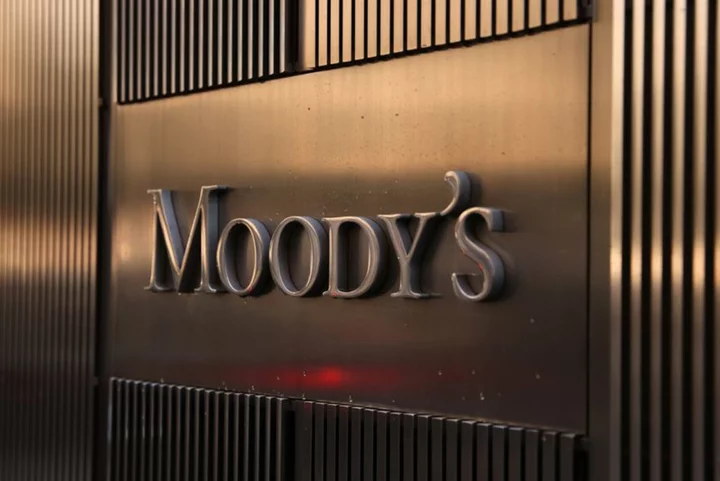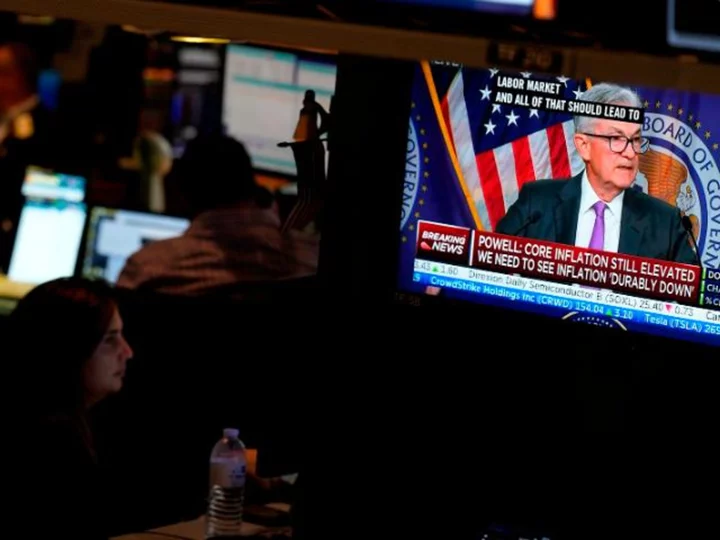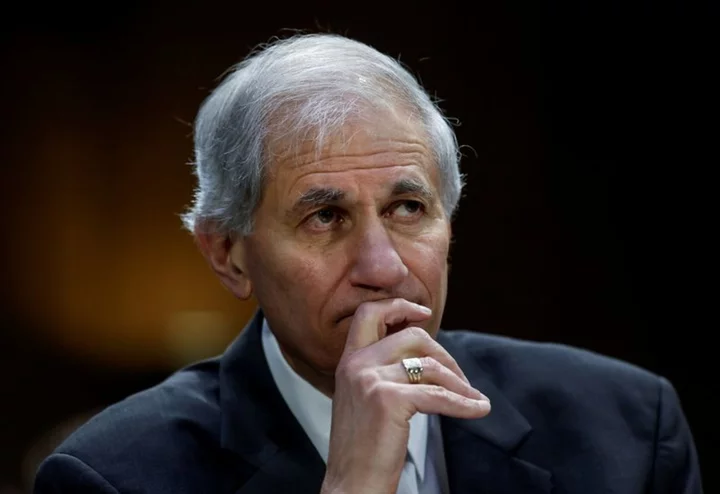By Davide Barbuscia
NEW YORK Rating agency Moody's expects the U.S. government will continue to pay its debts on time, but public statements from lawmakers during the debt ceiling negotiations could prompt a change in its assessments before a potential default, a senior analyst said.
Investors use credit ratings as one of the metrics to establish the risk profiles of governments and companies.
Generally, the lower a borrower's rating, the higher its funding costs. That means a possible U.S. government rating downgrade could affect the pricing of trillions of dollars of Treasury debt securities.
Investors have to contend with that risk ahead of the June 1 deadline indicated by the U.S. Treasury to raise the government's $31.4 debt ceiling, with Democrats and Republicans still deeply divided on how to curb the federal deficit.
Moody's has an "Aaa" rating for the U.S. government with a stable outlook - the highest creditworthiness evaluation Moody's gives to borrowers.
Fitch also rates the U.S. government triple A. S&P Global's rating is "AA-plus," its second highest.
S&P stripped the United States of its coveted top rating over a debt ceiling showdown in Washington in 2011, a few days after an agreement that the agency at the time said did not stabilize "medium-term debt dynamics."
Moody's expects lawmakers will eventually reach an agreement on raising the borrowing cap this time around. But it is bracing for protracted negotiations and potential temporary solutions, William Foster, a senior vice president at Moody’s, told Reuters.
The U.S. government would be considered in default if it missed debt payments, which would trigger a downgrade by the ratings agency by one notch to "Aa1."
But Moody's could take action before a default by changing its outlook on the U.S. government to negative from stable if lawmakers indicated that a default is expected, said Foster. A change in outlook would reflect a material increase in the probability of a downgrade.
"Circumstances like that could be if public messaging from both sides or from the lead negotiators was indicating that they're seriously contemplating default, and that they're comfortable that this is a viable option," Foster said.
"If we're getting close to the X-date and there seems to be a change in tone that seems significant, material, and changes the overall probability analysis, ... that's the only basis for a potential change prior to a missed payment," he said.
The X-date is when the government can no longer pay for all its bills. U.S. Treasury Secretary Janet Yellen on Sunday said June 1 remained a "hard deadline" for raising the federal debt limit.
Moody's placed the United States' Aaa rating on review for a possible downgrade in 2011 a few weeks before a debt limit agreement was reached.
Because of the tight time-frame, Foster said he continued to expect a debt ceiling agreement in the summer or at the end of the U.S. fiscal year in September, with lawmakers likely agreeing on a short-term limit suspension meanwhile.
Should the government reach the X-date without an agreement, Moody's expects principal payments of maturing debt would not be at risk as the Treasury could auction new debt to refund old liabilities while remaining under the existing debt limit.
Interest payments, however, would need to be prioritized to avoid a default. "If that was the scenario, we would expect that to happen," said Foster.
Should a missed payment occur, Moody's would downgrade the government by one notch, even in case of a brief default.
"The circumstances of this would be based on something that was avoidable, that was foreseeable, but it happened anyway because of politics," he said.
(Reporting by Davide Barbuscia; Editing by Leslie Adler)









